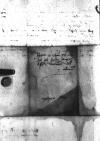Letter #5674
Paweł PŁOTOWSKI to Ioannes DANTISCUSFrauenburg (Frombork), 1539-05-24
| received [1539]-05-25 Manuscript sources:
Auxiliary sources:
| ||||||
Text & apparatus & commentary Plain text Text & commentary Text & apparatus
Reverendissimo in Christo Patri et Domino, domino
Reverendissime in Christo Pater et Domine, domine modis omnibus colendissime.
Praemissa diligenti sui commendatione.
Eo die, quo veni
Quam diutissime optimeque valere cupio meque iterum atque iterum gratiae Reverendissimae Paternitatis Vestrae commendo.
Datum
Eiusdem Reverendissimae Paternitatis Vestrae servitor


 AAWO, AB, D. 68, f. 265v
AAWO, AB, D. 68, f. 265v